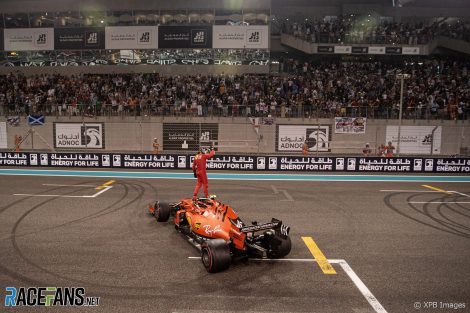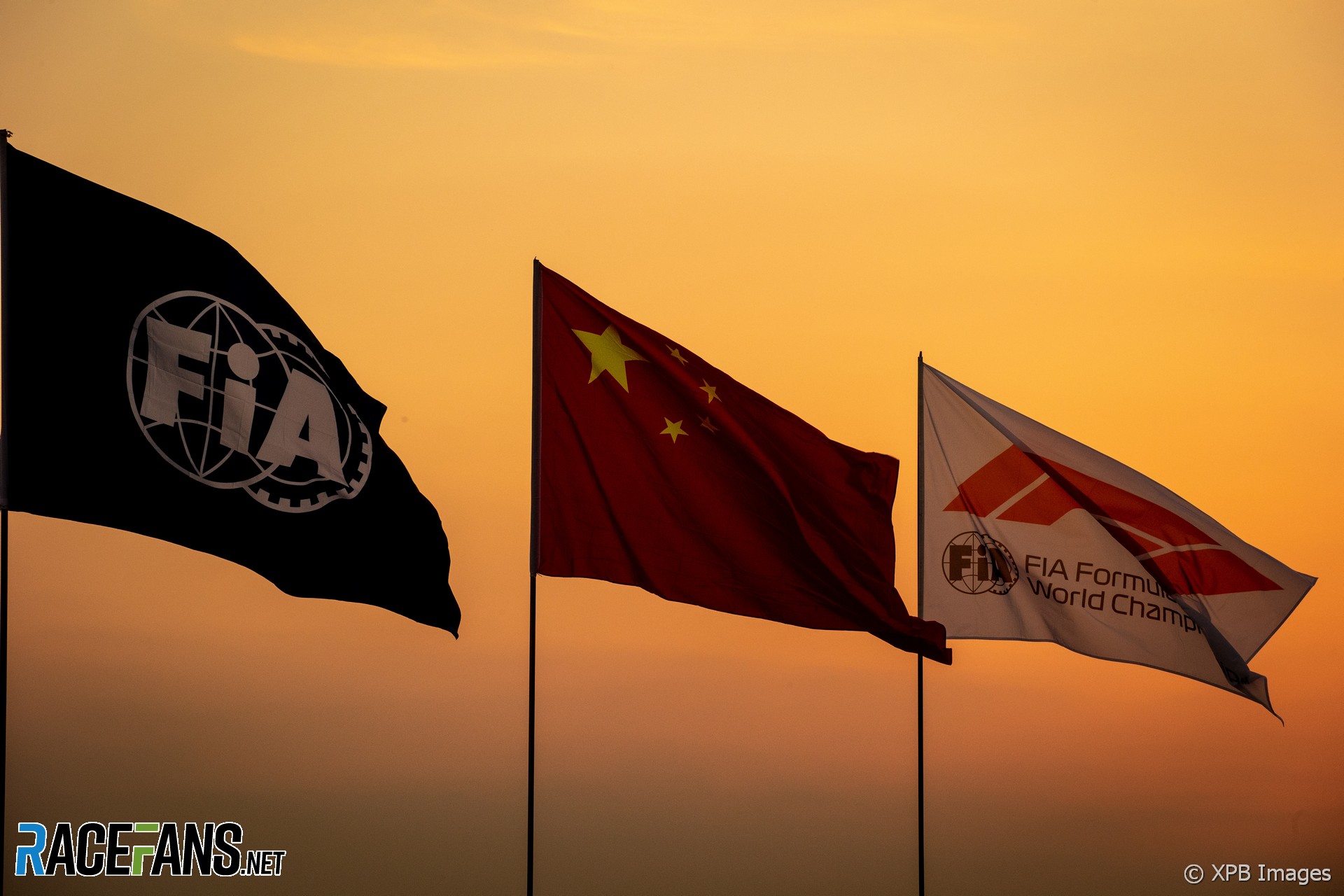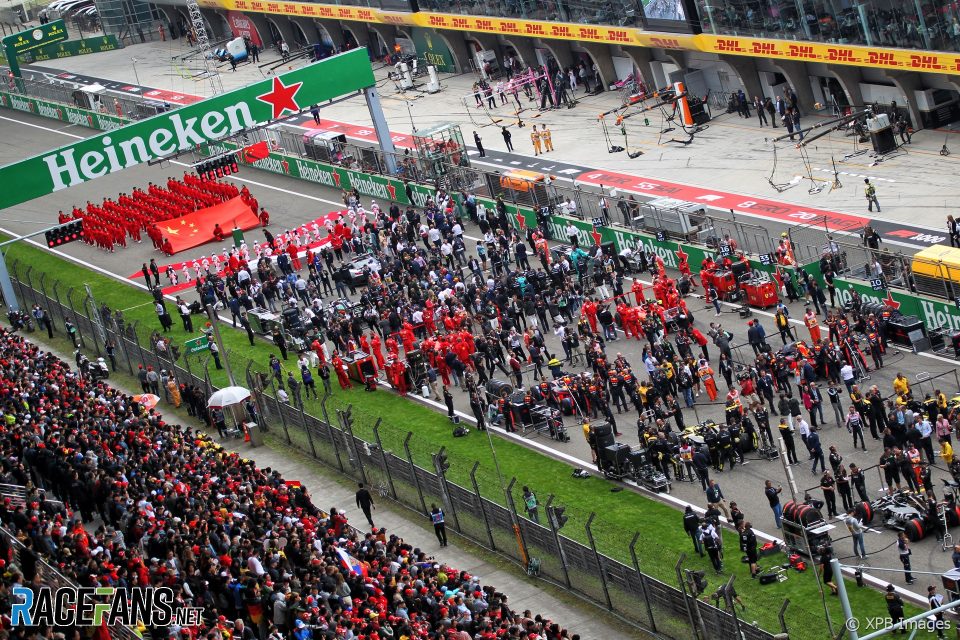The ‘postponement’ of the Chinese Grand Prix has been on the cards since the contagious nature of the coronavirus – now officially termed Covid-19 – became clear.
Only an utterly irresponsible sport would expect up to 2,000 personnel – when all functions and activities are factored into the equation – to travel to a country which has become the epicentre for the virus, and F1’s masters are certainly not that.
This Friday marks the absolutely final day for sea-freight shipment of kit, and hence a decision was needed this week. Although the matter was discussed informally during last week’s Strategy Group meeting – but not tabled as an agenda item, as reported elsewhere – any decision in this regard is not up to the teams, who do, though, have their takes on the matter. This event is not universally popular.
Mercedes F1 boss Toto Wolff expressed guarded enthusiasm for the race under present circumstances, saying on Monday: “At the moment it looks like we are going to China but not going would be a shame. We had full grandstands last year, it was sold out,” adding he was that afternoon heading for a biometric scan for visa purposes.
Unsaid was that his brand is a top-seller in China’s premium sector, that Mercedes operates a joint venture with local car company Geely for its Smart brand, and that the race was ‘sold out’ only because swathes of stands are covered with advertising hoardings.

Designed to accommodate 200,000 paying punters, the Shanghai International Circuit battles to pull a third that on race day despite being situated on the outskirts of Shanghai with its population of 25 million. Indeed, a three-day attendance of 160,000 was reported in 2019, with race day estimates of around 70,000.
For the rest, a source put it most succinctly after the meeting: “I didn’t see any enthusiasm in the eyes of other team bosses to go to China…”
Cancellation of any FIA world championship round needs to follow due process. The promoter, Juss Sports Group in this case, approached the FIA-sanctioned local sporting authority (the Federation of Automobile and Motorcycle Sports of the Peoples Republic of China), which in turn approached the FIA for agreement. Agreement was then jointly reached between the governing body and commercial rights holder.
Advert | Become a RaceFans supporter and
While informal discussions were no doubt held, it was imperative that formal processes were followed. Any deviations could complicate issues such as insurance payments – in this case up to $40 million could be at stake – or leave the commercial rights holder open to legal challenges from both the race promoter and teams, the latter potentially arguing that they are entitled to compensation for not racing.

However, as outlined here previously, the challenge lies not in postponing the event, but in rescheduling it in the face of an already tight calendar and unknown factors surrounding this new virus. A vaccine is not expected for at least six months. Given current knowledge of the situation, would it be safe to stage the grand prix in December, or even next year?
Here lies F1’s predicament: while the event clearly needs to be postponed, commercial rights holder Liberty Media – the parent of F1 and listed on NASDAQ exchange – needs to pull out all stops to be seen to be earnestly accommodating the event to avoid accusations of trousering the fee without staging the race. Given the present state of Sino-USA relations, such a conclusion would be all easily reached in some quarters.
RaceFans understands four alternative dates came under review, but all face serious obstacles. Staging the race during F1’s summer break would requires unanimity from teams as F1’s sporting regulations call for a statutory break in August. A quadruple-header of Singapore-Russia-China-Japan was deemed logistically too complex.
The race could be slotted into the schedule either before or after the current finale at Yas Marina. But Abu Dhabi is believed to pay a premium for the honour of staging the final race, and is unlikely to waive it. Plus December weather in Shanghai is not exactly ideal for a grand prix, with daytime average highs of just 8C.
The final alternative, a Brazil-China-Abu Dhabi triple-header is also problematic given the implications of time zone swings. Plus, of course, team will be gearing up for F1’s new 2021 era, meaning spare parts will be at a premium, and Shanghai’s weather is only marginally warmer in November. Pushing Abu Dhabi’s date out by a week has implications on fans who have already booked flights and accommodation.
Thus, it seems, that the 2020 Chinese Grand Prix is likely to remain indefinitely “postponed”.
Advert | Become a RaceFans supporter and
2020 F1 season
Browse all 2020 F1 season articles



